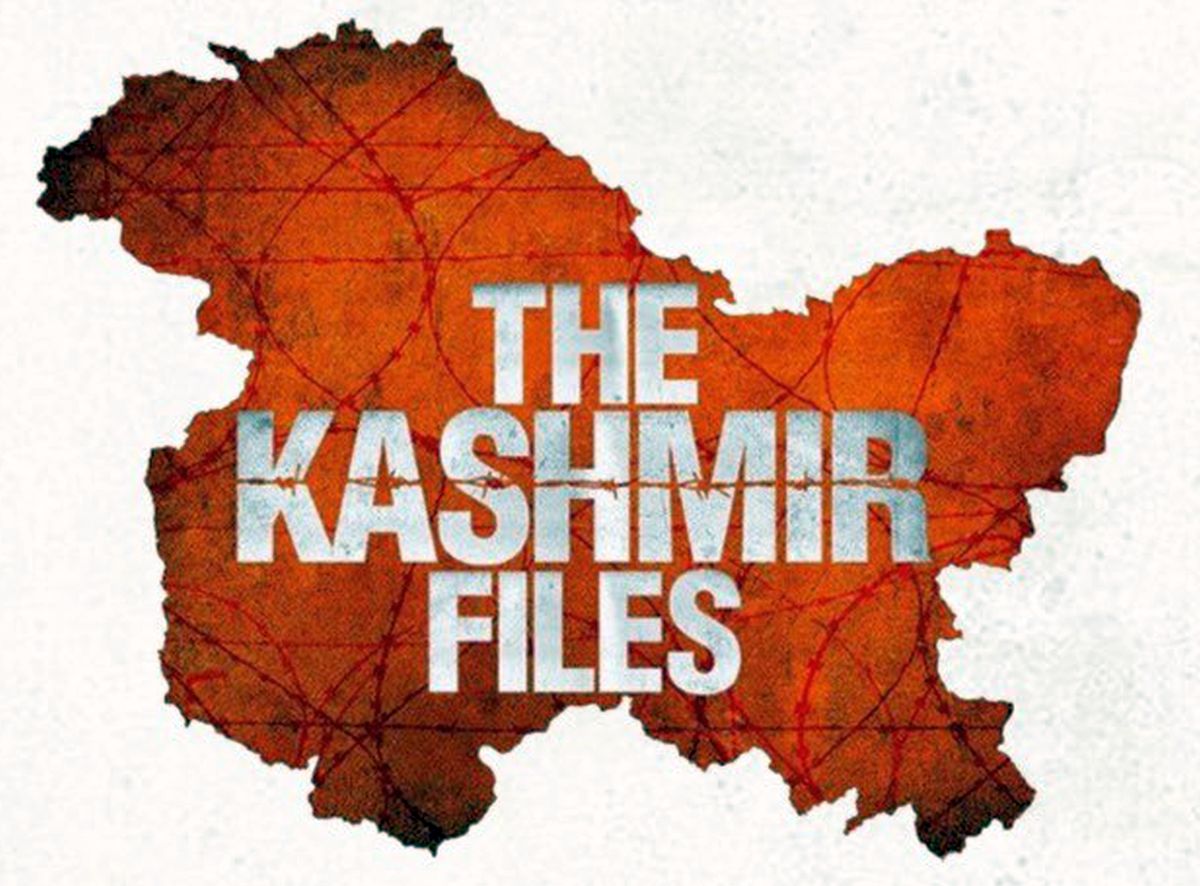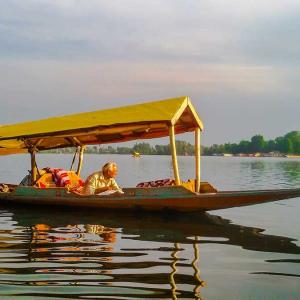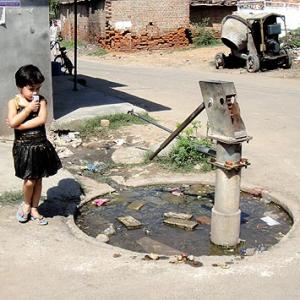'I am not sure of the numbers killed, but they were not as high as the use of the word 'genocide' suggests.'
'There is another meaning you could take, 'cultural genocide', in that the Pandit community is extremely small and their forced departure led to a wiping out of their culture.'

As Vivek Agnihotri's film The Kashmir Files, based on the exodus of Kashmiri Pandits from the Kashmir Valley in the early 1990s, makes waves across the country, the plight of the Kashmir Pandits has garnered attention once again.
Many Bharatiya Janata Party-ruled states have declared the film tax-free. Prime Minister Narendra Damodardas Modi on Tuesday praised the film for 'bringing the truth in its correct form' and said history has to be presented in the right context from time to time.
The issue also turned political, with the Congress accusing the BJP government of not doing anything for the welfare of the Kashmiri Pandits and asked, 'Till when will you take advantage by scratching wounds?'
Rediff.com's Syed Firdaus Ashraf speaks to journalist and author Manoj Joshi, whose book The Lost Rebellion: Kashmir in the Nineties documents the Kashmir insurgency in detail.
"A lot of what is being said now is myth-making. In the world of alternate facts, anything goes," says Dr Joshi.
In just five days. The Kashmir Files has become a super hit. It looks like Indian audiences always wanted to know about the Kashmiri Pandits's exodus because of jihadi elements, but nobody wanted to tell the truth like this film does.
Do you feel that the so-called 'secular-liberals' deliberately downplayed the plight of Kashmiri Pandits for 32 years?
To some extent, it was downplayed by the media at the time.
But in my 1999 book I have covered it extensively.
Will you call what happened to the Kashmiri Pandits a genocide? How many Kashmiri Pandits were killed in Kashmir?
It is not a genocide in the considered meaning of the term.
I am not sure of the numbers killed, but they were not as high as the use of the word 'genocide' suggests.
There is another meaning you could take, 'cultural genocide', in that the Pandit community is extremely small and their forced departure led to a wiping out of their culture.
Everyone talks about that dreaded night of January 19, 1990, which some Kashmiri Pandits call their 'Holocaust Day'. Why could the Indian State not stop the exodus of Kashmiri Pandits from the Valley?
That description is not very accurate.,
That was the day the Kashmiri Muslims call the 'Gowkadal massacre', if I am not mistaken.
The issue was that there was a mass uprising that led to the scared Pandits leaving the Valley in a hurry.
But to the best of my memory, there were no killings of Pandits on that day.
Holocaust is a big and specific word and it is a gross exaggeration to apply it in this instance.
On my visit to Kashmir, I found that Kashmiri Muslims blame Governor Jagmohan for the exodus of Kashmiri Pandits from the Valley. Congress leader Saifuddin Soz writes about this in his book. How far is it true?
Jagmohan thought he was doing the best he could.
But when he made the offer to Pandits in Kashmir to retain their jobs from Jammu, it encouraged their exodus.
I also found that ordinary Kashmiri Muslims don't have much sympathy for Kashmiri Pandits and resent them.
This has very old history.
It goes back to the conversion of Pandits to Islam and to the rule of the Dogras.
Why is it that as a country we failed to stop this mess in Kashmir in the 1990s leading to Pakistan winning over Kashmiri youth to cross the border for terror training?
The country was in a deep political and economic crisis at the time.
Right-wing Hindu groups blame the Congress for the exodus of the Kashmiri Pandits, but the fact is V P Singh was India's prime minister, ruling with the support of the the BJP and Communists. Why is blame then attributed to the Congress for this exodus?
A lot of what is being said now is myth-making. In the world of alternate facts, anything goes.
What was then chief minister Farooq Abdullah's role during the period? Did he try to prevent the exodus?
Farooq had resigned.
He was forced by the central government to release JKLF activists who had kidnapped Rubaiya Sayeed (then Union home minister Mufti Mohammad Sayeed's daughter) and he resigned.
Jagmohan came thereafter (as governor) and dissolved the assembly.
After the abolition of Article 370, one thought that Kashmiri Pandits would move back to Kashmir in big numbers, but that did not happen. In your opinion, why have the Pandits not returned?
Pandit migration is not a new phenomenon.
People have been leaving for more than a century, the 1990 events accelerated it.
The Pandits have been an enterprising community and they have built alternative lives elsewhere and see no reason to go back, especially since insecurity remains.









